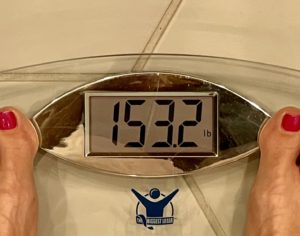A while back I promised to blog about my various supplements for anyone else who is interested in brain health and in potentially delaying or preventing cognitive decline. I talked about one of the most important ones, in my view: DHA (and preferably in phospholipid form). Today I want to briefly talk about supplement #2: Theracurmin.
Turmeric is an orange colored spice commonly found in curries, and has several polyphenol compounds in it thought to have antioxidant and anti-inflammatory effects. There have been lots of animal studies showing the benefits of turmeric on cognitive health, but unfortunately human clinical trials are fewer and less consistent. One issue is that curcumin, one of the main bioactive polyphenols found in turmeric, is not very bioavailable — meaning, you can eat it, but most of it gets excreted and is not used by your body. Adding black pepper to turmeric can significantly improve the bioavailability because of its interaction with a compound in pepper called piperine. But still, it’s fat-soluble and not very easily absorbable without consuming fat at the same time.
Then, about 10 years ago, Theracurmin was created: it’s a new formulation of curcumin that is water-soluble and significantly more bioavailable. One small human study was published in 2019 that showed that a daily dose of 180mg of Theracurmin may prevent progression of cognitive decline in people already showing mild cognitive impairment. Even more promising was this 18-month prospective clinical trial in which 90mg of Theracurmin twice daily (compared to placebo) was found to improve certain specific cognitive tasks in non-demented older adults, and importantly, improved the brain pathology such as amyloid plaques and tau protein seen in the amygdala and hypothalami of treated patients (as determined by a special type of brain image called an FDDNP-PET scan). I found the brain imaging findings to be particularly exciting!
These are a few promising, but very small, studies. I personally have chosen to take 90mg daily of Theracurmin as part of my extensive supplement regimen. I have no idea whether it’s helping, our even whether it’s not doing me harm, but I’m willing to take the chance right now. I’ve also been mixing a 1/2 teaspoon of the actual spice turmeric with freshly ground black pepper (and cinnamon to improve the taste) into my daily kefir, which I drink for its probiotic benefits. The kefir contains some dairy fat, and I simultaneously take my krill oil and phospholipid supplements, which all provide a fatty vehicle for absorption. All in the name of Alzheimer’s prevention!
On a separate note, I wanted to give you an update on my weight: honestly, I wasn’t trying very hard over the past few months. But I am proud to say that at least I haven’t regained a bunch of weight, either! Here’s the Project135 update:



One Response
Thx!